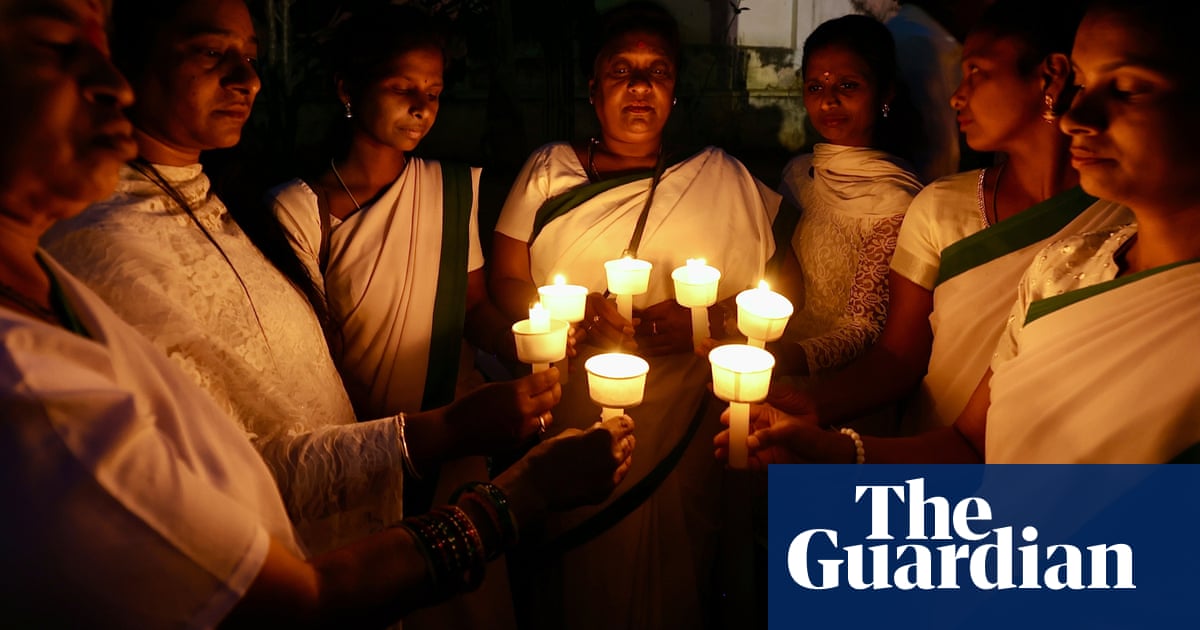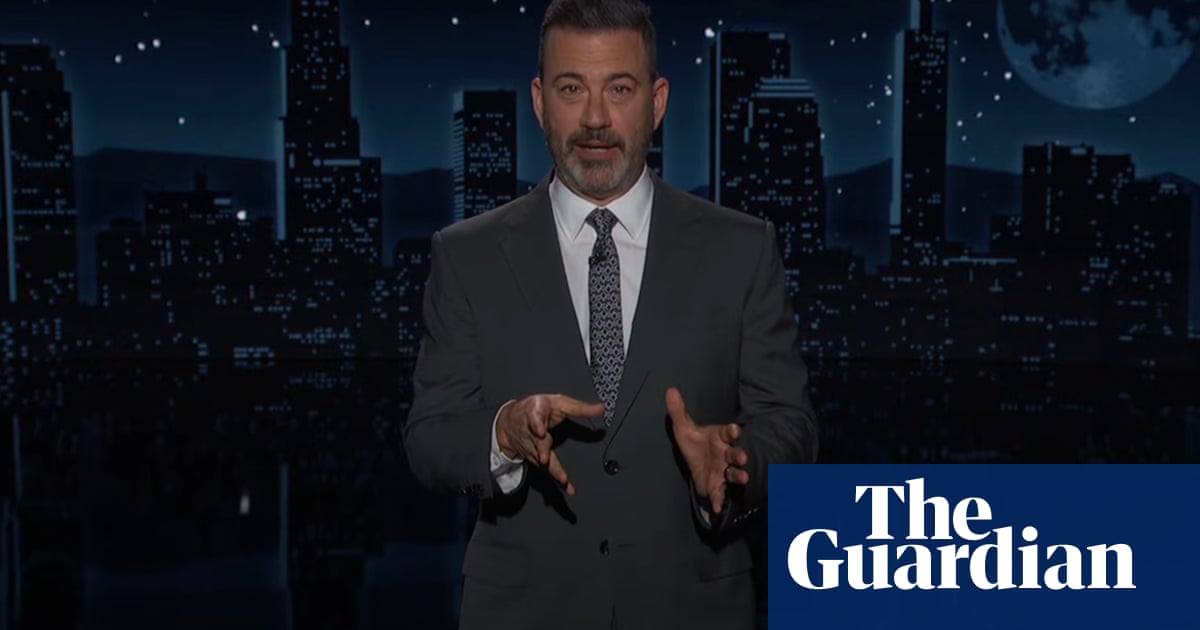With more than 75m copies of his books sold around the world, Terry Pratchett is one of the most loved British writers, best known for his comic fantasy novels set on a fictional planet, Discworld. Ten years on from the author’s death, and justbefore what would have been his 77th birthday, Pratchett’s biographer Marc Burrows has put together a guide to his hero’s work.
The entry point
Among Pratchett fans, this is the most controversial question you can ask, and often the one that puts people off. He wrote so many books: 59 novels, with 41 set on Discworld, plus art books, diaries, science collaborations and short stories. Some purists insist you must start with the 1983 novel The Colour of Magic, the first Discworld title. Pratchett himself disagreed, and I’m with him. It’s a good book, not a great one – not all the jokes land, and it leans heavily on fantasy tropes. He got much better, very quickly.
The real secret is that most of Pratchett’s books work as entry points. He always wrote with new readers in mind, offering a gentle handhold into his world. But a good choice would be Feet of Clay – a proper police procedural with a great mystery and thoughtful reflections on prejudice, class and the very nature of personhood. And it’s funny, but that’s a given when it comes to Pratchett.
The one that will cheer you up
Witches Abroad, a 1991 Discworld novel about three witches on an epic quest to make sure a poor servant girl doesn’t marry a prince. On the way there are parodies of The Lord of the Rings, The Wizard of Oz, Dracula and Hans Christian Andersen stories. Pratchett writes older women beautifully: Nanny Ogg might be one of the finest comic sidekicks in literature. This book skewers fairytales with glee, but also introduces one of Pratchett’s key ideas:
People think that stories are shaped by people. In fact, it’s the other way around.
It’s a joy from start to finish.

The masterpiece
Pratchett’s 2002 book Night Watch was recently republished as a Penguin Modern Classic, and rightly so. It’s his angriest and most profound novel – a kind of mashup of Les Misérables and The Terminator via the Peterloo massacre and the battle of Cable Street. It’s about justice, trauma, and how doing the right thing is exhausting, relentless work. It’s also a page-turner, a moral treatise, a time-travel crime caper … and includes a scene where a police officer shoves ginger up an ox’s bum. It’s perfect.
The one you’ll learn from
In the author’s 1998 novel, Carpe Jugulum, a family of vampires invade the tiny mountain kingdom of Lancre, allowing Pratchett to have endless fun with the tropes of gothic fiction. There’s a much darker core to this one, though. It’s a story about who we are and about right and wrong. It’s worth reading for this line alone:
Sin, young man, is when you treat people like things. Including yourself. That’s what sin is.
The one that will make you laugh out loud
A slightly obscure pick, but I loved the 1999 spin-off Nanny Ogg’s Cookbook. The recipes themselves are largely irrelevant. The real gold is Nanny’s etiquette advice; this is some of the best comic character writing Pratchett ever did.
after newsletter promotion
The one that deserves more attention
The Johnny Maxwell trilogy: Only You Can Save Mankind; Johnny and the Dead; and Johnny and the Bomb. These follow the adventures of a chronically worried teenage boy, sheltering from his parents’ divorce and the sheer awfulness of the adult world (the first book in the series is set during the Gulf war). He enters video games in his dreams, converses with the spirits of the dead and travels back in time to the second world war. Often overshadowed by Discworld, these young adult books are smart, warm, and full of big ideas handled lightly.
The one that will make you cry
The Shepherd’s Crown, Terry’s final novel, published just months after his death in 2015. It’s his farewell to Discworld and its characters. There’s a death scene I still struggle to read. It’s graceful, brave and completely unshowy.
The one to give a miss
Pratchett always wanted to write hard sci-fi, and The Long Earth series was an idea he’d had since the early 80s. The success of Discworld meant it was delayed and eventually written in collaboration with Stephen Baxter. The premise – what if we could step between endless empty Earths? – is solid. The first book has moments of magic, but the series runs out of steam quickly, and the characters never quite land.
If you only read one, it should be
The 2008 novel Nation. This was the book of which Pratchett was proudest. A young adult novel full of rage and doubt, handled with an astonishing lightness of touch. Earlier novels such as Small Gods saw him blowing raspberries at organised religion. Here, he shakes his fist at the gods themselves.

 7 hours ago
6
7 hours ago
6













































